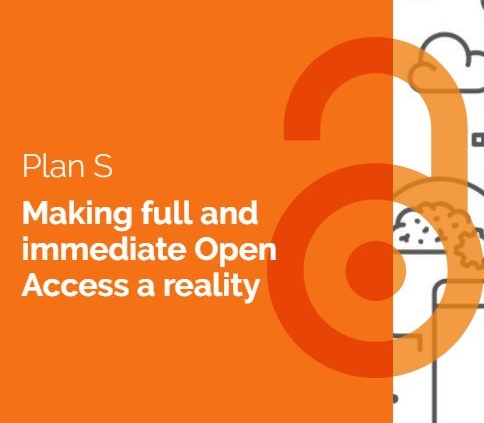Revised Plan S principles and implementation guidelines published
Plan S, the initiative to transition the scientific publishing system towards open access, was updated and postponed for a year. Its initiators, the cOAlition S, an international consortium of research funding organisations, have published a revision of its principles and implementation guidelines, taking onboard the feedback received by ALLEA and other stakeholder organisations. The update extends the envisaged starting date by one year until 2021. Affected researchers and scientific organisations will now have more time to adapt to the new open access policy requirements.
ALLEA supports open access as a major step towards realising the universality of science. In response to the first proposal of Plan S in 2018, the federation published an initial statement assessing key aspects that need to be taken into consideration in order to prevent unintended consequences in the scientific publishing sector and the research evaluation system. The revised version of the plan explicitly praises the work of ALLEA in this regard and calls for continued dialogue with the academic community.
According to cOAlition S, the revised Plan S maintains the fundamental principles:
- No scholarly publication should be locked behind a paywall;
- Open access should be available immediately i.e. without embargoes;
- Full open access is implemented by the default use of a Creative Commons Attribution CC BY license as per the Berlin Declaration;
- Funders commit to cover open access publication fees at a reasonable level;
- Funders will not support publication in hybrid (or mirror/sister) journals unless they are part of a transformative arrangement with a clearly defined endpoint.
But a number of important changes are proposed in the implementation guidance:
- In order to provide more time for researchers and publishers to adapt to the changes under Plan S, the timeline has been extended by one year to take effect in 2021;
- Transformative agreements will be supported until 2024;
- More options for transitional arrangements (transformative agreements, transformative model agreements, ‘transformative journals’) are supported;
- Greater clarity is provided about the various compliance routes: Plan S is NOT just about a publication fee model of open access publishing. cOAlition S supports a diversity of sustainability models for open access journals and platforms;
- More emphasis is put on changing the research reward and incentive system: cOAlition S funders explicitly commit to adapt the criteria by which they value researchers and scholarly output;
- The importance of transparency in open access publication fees is emphasised in order to inform the market and funders’ potential standardisation and capping of payments of such fees;
- The technical requirements for open access repositories have been revised.
The summary was extracted from the cOAlition S rationale for the revisions.
Opening up the dialogue
In the beginning of this year, ALLEA also submitted recommendations to the consultation on the implementation guidelines. ALLEA President Antonio Loprieno met in Brussels with Robert-Jan Smits, Open Access Envoy of the European Commission, and Marc Schiltz, President of Science Europe, to discuss the next steps of Plan S.
Seeking to build a constructive dialogue within the research community on the future of Open Access, ALLEA has worked with its Member Academies to spur the debate on the topic. For instance, the Royal Irish Academy and the Royal Academy of Arts and Sciences of Barcelona have organised public events to promote a better understanding of the implications of Plan S for individual researchers, scientific organisations and publishers.




